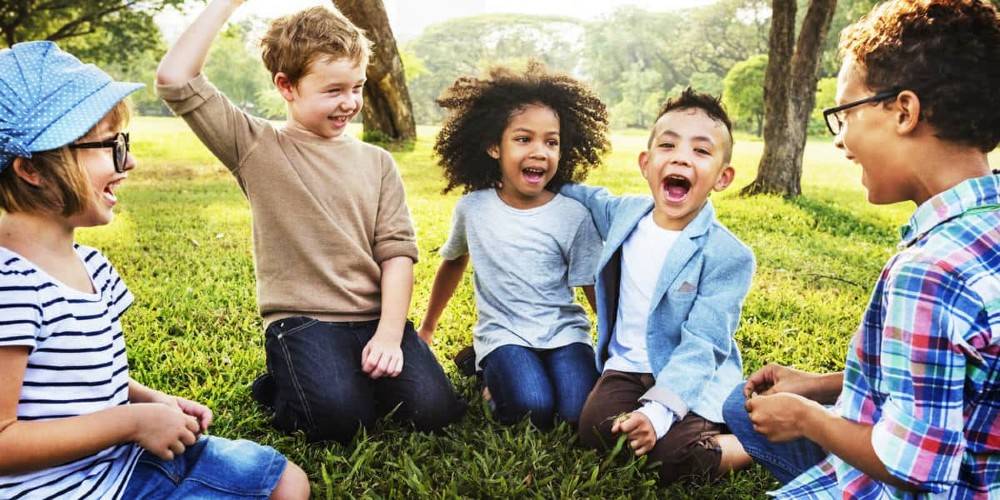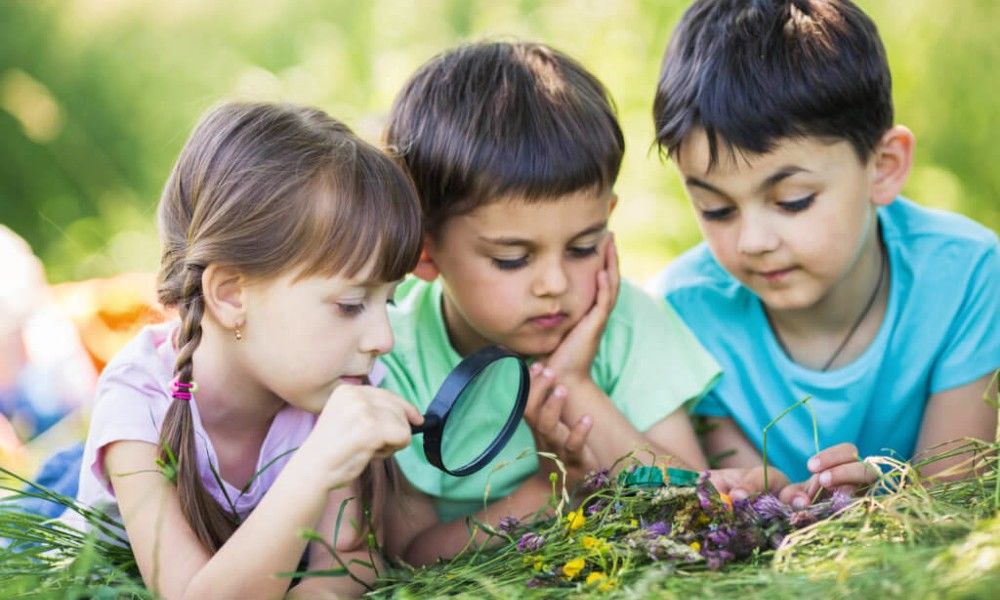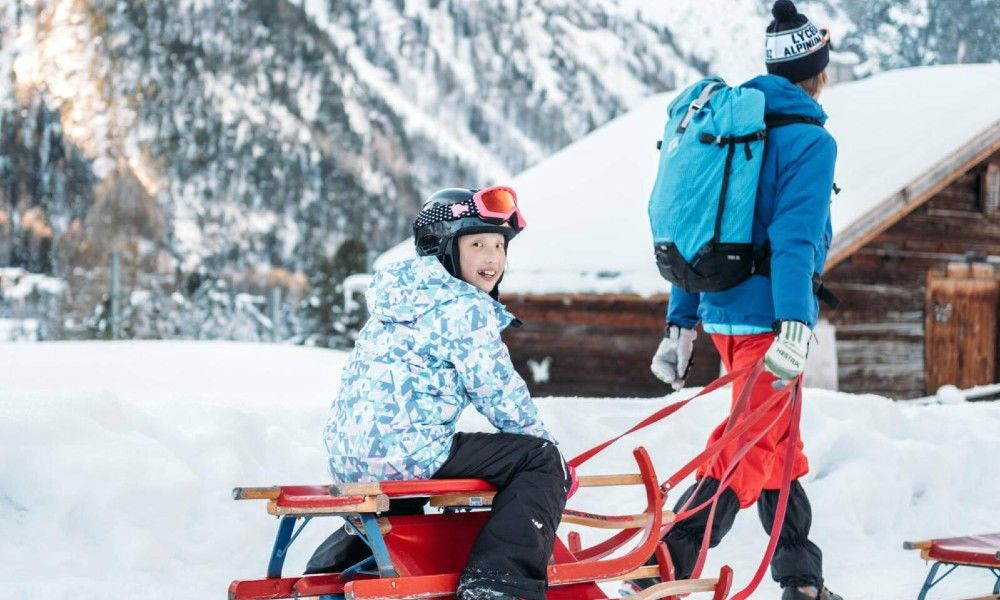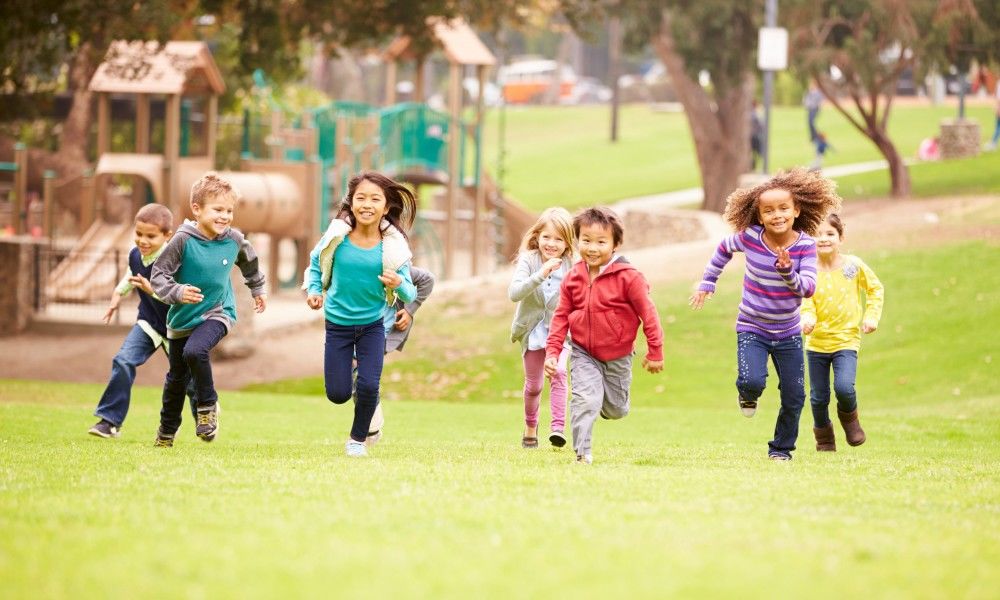The idea of interacting with nature has been gaining popularity in recent years.
Today, natural play is one of the most discussed matters in the world. Developers, planners, and architectures are looking for ways to design nature-friendly homes.
What are the standards of natural play, and why is it better than traditional play equipment?
In this post, we shall discuss the importance of nature in child development.
Are you considering enrolling your child in a Summer Camp in 2021?
Find out what Les Elfes has to offer!
 Understanding Natural Play
Understanding Natural Play
Natural play is the idea of connecting with natural environment elements in an artistic manner.
It incorporates activities such as building dens, climbing trees, and outdoor cooking.
Unlike in the past, we live in a digital era where children are not only environmentally isolated, but they also spend a lot of time seated in front of the computer, smartphones, and television screens.
The natural play concept is aimed at encouraging children to immerse themselves in semi-natural and natural environments.
Why Should You Spend Time Outside?
According to studies, numerous benefits come with spending quality time outdoors for both children and adults.
There seems to be contention in deciding what type of environmental setting is ideal.
However, a big percentage of the studies are in agreement that children who spend time playing outside are:
- Happier
- Smarter
- Less fidgety, and
- More attentive compared to those who spend more time indoors
Why is Playing in a Natural Environment Important?
 Many parents understand the importance of nature in child development.
Many parents understand the importance of nature in child development.
However, they’re reluctant to allow their kids to play, explore, and discover the outdoors independently.
The current generation of kids is overprotected, confined indoors, and exposed to long hours of technology.
In the past, children would spend time engaging in nature-related activities such as modeling, climbing trees, playing, and discovering dew drops.
Outdoor playing is a great way of helping your children to discover, explore, create and flourish.
Remember, children are curious, and exposing them to nature helps them experiment and challenge themselves by probing natural environments.
As a parent, you should beware that children are natural explorers.
They have a natural passion for being outdoors, where they get natural and sufficient opportunities to learn and grow.
Desire for Challenge
Children’s bodies have an intense desire for challenge.
Their brain is ready to discover the feeling of climbing, gripping, balancing, and swinging.
On the other hand, their muscles and bones have an intense desire to develop.
To children, physical activity is both interesting and challenging.
Interacting with nature and engaging in outdoor-related activities is critical for your children.
Here are the reasons why.
It frees them
Today, a big percentage of what we read on paper or watch on television is about dangerous things happening across the world.
As a result, parents have become paranoid, with many of them harboring thoughts of bad things happening to their kids.
This explains why some parents won’t be comfortable with the idea of engaging in outdoor activities.
What these parents forget is that accidents and injuries can happen anywhere and anytime, even under supervision.
The chances are that your kids have been injured under your watch.
Allowing yourself to be surrounded by unfounded fear denies your kids the freedom they need to discover new things.
Being skeptical about outdoor play does little to nurture your child accordingly.
A child will have lived normally if they are allowed to engage in outdoor adventure.
You don’t have to monitor your child every time they are out playing.
You can even organize a winter camping trip for them, for instance.
The advantage of going to camps is that the child will interact with their age mates from various parts of the world.
Many parents will be reluctant to send their children on a camping excursion in a different region.
However, doing so prepares the child to handle more challenging tasks in the future.
· Attending Camping Sessions in Switzerland
If you’re looking for the ideal camping excursion opportunity, Switzerland should be your way to go to the country.
Famed for its beauty, snow-filled alpine terrain, and chocolate factories, Switzerland is one of the most visited countries across the world.
It’s home to some exemplary ski and camping resorts such as Verbier and Les Elfes.
Parents worried about sending their children can rest easy knowing that their children will be safe in Les Elfes.
Established more than thirty years ago, the camp is one of the few that operate throughout the year.
More professional, qualified, and experienced staff work around the clock to ensure kids are safe.
Your child will have a chance to discover new things, engage in adventurous activities, and make new friends.
At the end of the trip, they will have mastered the art of being independent.
· Normal Childhood
Allow your child to have a normal childhood by engaging in healthy outdoor adventures and risks.
While the past generation of parents wasn’t perfect, they allowed their kids to connect with nature.
The current generation of parents can learn a lot from them.
Depriving your child of outdoor-related activities forces them to miss out on the fun and exciting memories they can only get from interacting with nature.
Emotional Benefits
Being outside gives children a chance to move around, explore, make noise, and be children.
Other outdoor-related activities that kids can engage in include: climbing, skipping, hopping, jumping, and running, which relieves anxiety, tension, and restlessness leaving them, relaxed.
These self-expression tactics are usually restricted when children remain indoors. Nature creates a sense of peace and brings out the best in children.
Children will often be curious to discover outdoor-related activities, with studies showing that interacting with nature can reduce anxiety and attention deficit hyperactivity disorder symptoms.
Enhances Sensory Skills
A vision and optometry science study found that children who frequently interact with nature have enhanced distance vision than those that spend long hours indoors.
Preschoolers, for instance, learn new things through their senses. Imagine how excited a toddler gets when they see new animals.
They will stop randomly by a collection of sweet-scented flowers to touch and smell them.
You’ve probably seen children get awed at flowing water or even yearn to taste wild berries.
Children who spend time outdoors get an opportunity to exercise nearly all their senses.
However, children who remain glued to electronic gadgets only make use of their sight and hearing senses.
This can harm non-cognitive abilities.
Social Benefits
Children who spend time outdoors get a chance to interact with new playmates.
Children can play alone outdoors, connect with their peers, learn how to share, and enhance their problem-solving skills.
Further, children can team up to invent games and rules on their own, according to their preferences.
Children can be creative given time to explore the outdoors in the absence of adults, albeit with supervision.
They will have all the time to come up with their rules and solve any arising problems with ease. Nature teaches children how to live together with minimal squabbles.
Your child will become more empathetic and learn how to comfort friends when they get hurt when playing.
It Brings the Best Out of Your Kids
Often, parents think that playing indoors is easier because there is less to worry about in terms of strangers or extreme weather.
However, the restrained environment can limit your child’s potential. The benefits of playing outdoors are limitless.
For instance, by playing outdoors, your child’s mind will be fresh, and they will be focused.
Further, an outdoor environment exposes your child to different situations to learn and get accustomed to different conditions.
For instance, playing on uneven surfaces and conditions helps your child improve their balancing and coordination skills.
During playtime, children can climb on objects or trees, which helps them figure out the dangers involved.
This helps them enhance their risk assessment skills. Did you know that your child can learn something out of sustaining an injury while playing?
It may seem unbelievable, but it’s true. They will not only gain problem-solving skills, but they will also learn how to persevere.
Further, they will bolster their appreciation of different sports such as baseball and tennis.
Children become resilient physically and mentally as they interact, learn, and get accustomed to the outside world.
Allow your child to play outdoors or even attend outdoor-related activities such as summer camps or field trips.
When they come back, you will notice the transformation.
Restricts Screen Time
The research found out that, on average, children spend over seven hours every day on entertainment or screen media.
This habit hinders their development. What’s worse is that hardly any screen time rules that parents set work for kids.
Often, parents are to blame too. This is because they’ll allow the children to keep playing their favorite game or watching television to enjoy their free time.
Sometimes children can nag and convince you to allow them to use their gadgets.
While some parents will grant permission out of sympathy, it’s important to learn how to say no firmly.
Encourage your children to get out and explore, as well as experience fresh air. It’ll take some time before your kids can get used to the new routine.
However, with time they will adapt and understand that you’re doing it for their benefit.
Finally
Children don’t have to visit the park every day to have a great time outdoors. They participate in other activities such as tree planting, hiking, or riding bicycles.
If your budget allows, you can organize a bigger outdoor trip for the entire family. The benefits of engaging in outdoor-related activities can’t be understated.
*Sources: 1. Childhood Development and Access to Nature 2. BENEFITS OF NATURE FOR KIDS 3. Benefits of Connecting Children with Nature 4. Why Kids Need to Spend Time in Nature 5. Six Ways Nature Helps Children Learn





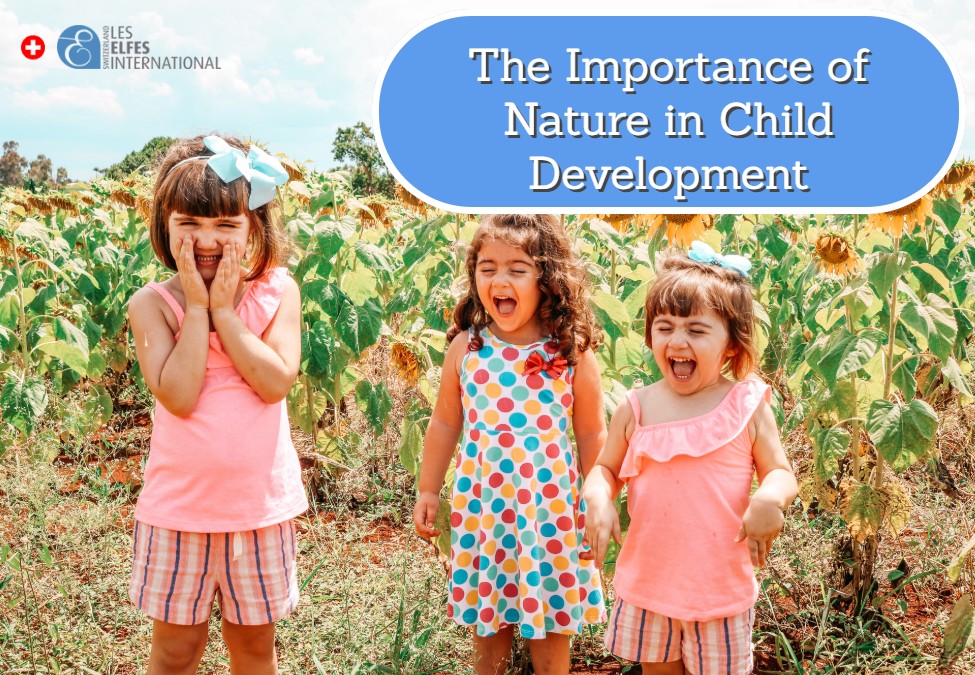
 Understanding Natural Play
Understanding Natural Play